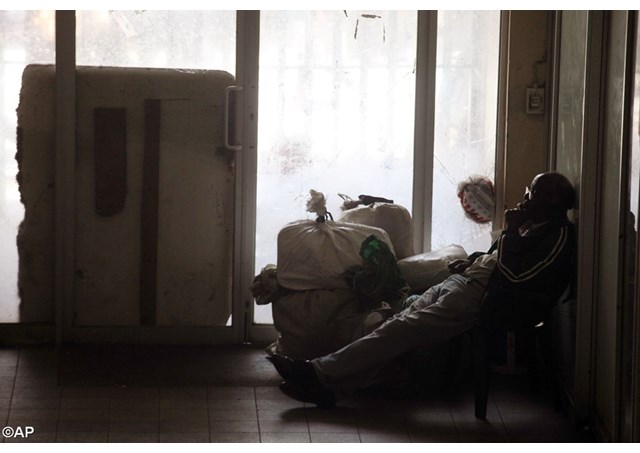
500 Refugees face eviction from Church building: Church bills and costs too high

More than 500 people face eviction from the the Central Methodist Church in downtown Johannesburg, which has been a haven for refugees and the homeless for the past 14 years.
In one of Johannesburg's grittiest blocks, the Methodist church offered shelter to those who fled neighboring Zimbabwe and other troubled African countries, as well as South Africa's own homeless. Bishop Paul Verryn opened the house of worship to the needy and believes the church has the responsibility to be more than a place of worship and to help those new to the city integrate into an unforgiving urban environment. However, Verryn's policy has been controversial as the Church became a teeming dormitory.
``As many problems as there are, there are just as many of the most incredible
people with the most spectacular potential,'' says Verryn of those who pass through
the church's front door every day. ``It is an exposure into a different way of being
church.''
In 2000, the church began to take in a few dozen people who were too vulnerable to
live on the street and soon attracted undocumented migrants, especially from Burundi,
Rwanda and Zimbabwe.
In 2008 violent xenophobic attacks against African immigrants in South Africa saw
the numbers of refugees in the church swell to more than 3,000 seeking safety.
That number dwindled to 568, as of Christmas Day, said Verryn, and the five-story
resembled an indoor slum. ``I think the conditions that people are living-in in this
place are not really acceptable,'' said Verryn. ``It's one step better than the street.''
The refugees shared about a dozen toilets and cooked near any electric outlet they
could find. Children collected water in recycled soda bottles and stored it near their
family's mattresses. The basement, which houses the church's child care center, is
flooded and the smell of stale water and a rotting carpet wafts up.
The church operates a medical clinic, school, adult training workshops, fitness classes
and other outreach programs that have assisted the estimated 30,000 people who found
refuge in the church over the years, said Verryn. Church officials say they can no
longer afford the wear and tear on the building or the water and electricity bills
incurred by the refugees.
Verryn, who has a history of intervening in political struggles since South Africa's
apartheid days when he hid activists in his own home, says he understands that his
decision to house immigrants is polarizing. He has been transferred to Soweto, more
than 20 Kilometers from central Johannesburg, where he is trying to set up alternative
accommodation in a community center. He hopes that some of the refugees will choose
to follow him. In his office on the church's fourth floor, Verryn sat in a worn armchair,
surrounded by stacks of identity documents and immigration applications as he tried
to secure last-minute solutions for his congregants.
(Source: Associated Press)
| All the contents on this site are copyrighted ©. |


